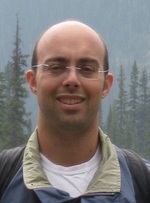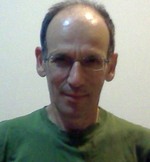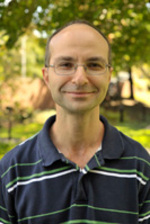About the Authors

Shachar Lovett
member, School of Mathematics
Institute for Advanced Study, Princeton, NJ
slovett[ta]math[td]ias[td]edu
http://www.math.ias.edu/~slovett
member, School of Mathematics
Institute for Advanced Study, Princeton, NJ
slovett[ta]math[td]ias[td]edu
http://www.math.ias.edu/~slovett
Shachar Lovett graduated from the
Weizmann Institute of Science
in 2010; his advisors were
Omer Reingold
and
Ran Raz.
He is interested in the theory of computing,
combinatorics, and coding theory, and in particular in the interplay
between structure, randomness, and pseudorandomness.

Roy Meshulam
professor, Department of Mathematics
The Technion, Haifa, Israel
meshulam[ta]math[td]technion[td]ac[td]il
http://www.math.technion.ac.il/~meshulam
professor, Department of Mathematics
The Technion, Haifa, Israel
meshulam[ta]math[td]technion[td]ac[td]il
http://www.math.technion.ac.il/~meshulam
Roy Meshulam is a Professor of Mathematics at the
Technion.
He has worked in a number of areas, including applications of harmonic
analysis to combinatorics and extremal problems for spaces of matrices.
In recent years his main research interests
have been applications of algebraic
topology to discrete geometry and random simplicial complexes.

Alex Samorodnitsky
professor, School of Engineering and Computer Science
The Hebrew University of Jerusalem, Jerusalem, Israel
salex[ta]cs[td]huji[td]ac[td]il
http://www.cs.huji.ac.il/~salex
professor, School of Engineering and Computer Science
The Hebrew University of Jerusalem, Jerusalem, Israel
salex[ta]cs[td]huji[td]ac[td]il
http://www.cs.huji.ac.il/~salex
Alex Samorodnitsky graduated from the
Hebrew University of Jerusalem
in 1999; his advisor was
Nathan Linial.
He is interested in coding theory, combinatorics, and the theory of
computing, and especially in applying tools
of analysis and geometry to
these areas of discrete math.
